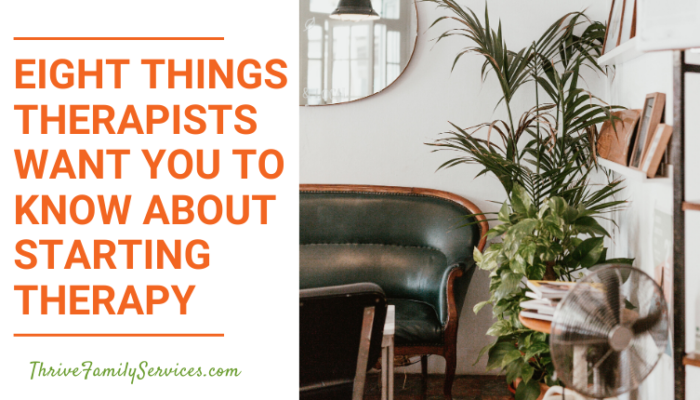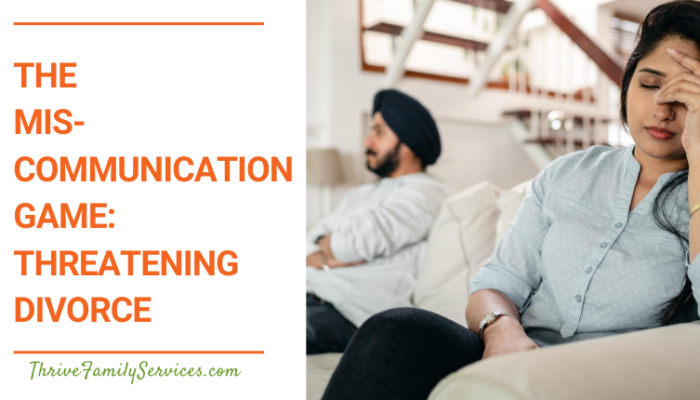Therapy and mental health services are relatively new services when it comes to health care. However, the popularity of people seeking mental health services is growing quickly. Therapy is being shown more in movies, television shows, and social media. As the conversation around people attending therapy increases, the trend of people actually seeking therapeutic services increases, as well.
In fact, there was a web-based study in 2017 that found that 41% of American adults have seen or are seeing a therapist, while 36% of people report being interested in starting therapy for the first time. This is a huge percentage of the population with an interest in therapy! Yet plenty of people still have questions about what exactly it means to be “in therapy.”
How do I get started? What would I talk about? Does it work?
As a therapist who has also been in therapy, I know there are a lot of questions and curiosities that people can have before they start therapy – or even while they’re in it. Since there is still an element of shame around talking to others about mental health, it can be hard to know who to talk to about starting therapy.
So, here are eight things that this therapist wants people to know about therapy:
1. Seeing a therapist doesn’t mean you’re crazy or weak
In fact, the opposite is true! People seek out therapy for a variety of reasons, including trauma, relationship trials, life transitions, mental health maintenance, or diagnosis treatment. Experiencing difficulties in relationships, emotional well-being, or life events are things that every person in the world goes through. In fact, I have never met anyone who hasn’t struggled with at least one of those things in their lifetime.
Struggling does not make someone crazy or weak. It makes them human.
It can be hard to find someone to talk to about these topics, and it can be even harder to find someone who can actually talk to you about these topics in a healthy way. Well-meaning parents, partners, and friends might not give you the support or tools needed to successfully navigate whatever it is that you’re going through.
Mental health is no less important than physical health. In fact, staying mentally and emotionally healthy significantly lowers the risk of physical health problems. It’s important to find resources to keep yourself healthy – like starting therapy – and doing so means you are strong and sane.
2. It is important to find the right fit when starting therapy
One of the most overwhelming parts of starting therapy can be finding the right fit between therapist and client. As a therapist, so many people in my personal life have reached out to me for help finding a therapist of their own. And I have to admit – if this wasn’t my profession, I would feel incredibly overwhelmed at all of the factors to consider when finding a mental health professional. Affordability, expertise, education, proximity, and personality are just a few of the factors to consider when looking for a therapist.
How in the world are you supposed to find the therapist who is the right fit for you?
Start by recognizing what your goal of therapy is. You wouldn’t go to a cardiologist if you broke your arm, right? Like all healthcare, there are different specialties. Therapists can specialize in things like relationships, trauma, depression, substance use, and more. A good place to start is finding someone who has training in the area that you need help with. Next, take into consideration factors like affordability and location.
Once you are able to narrow down your search through specialties and logistics, find someone you feel comfortable talking to. Personality, age, gender, and public reviews are all things to consider when making that first appointment. Starting therapy is something to do for yourself. Make sure the person you work with is someone that you will benefit from talking to.
3. There is not a “magic wand” to make it better
It takes a lot of emotional work and vulnerability to make changes after starting therapy. Too often, I see people get frustrated or give up after attending a few therapy sessions. Mental health is not something with a quick fix. Repairing broken relationships, healing from trauma, and learning emotional coping skills are things that take time.
The idea of walking into therapy and getting a handout of what to do might seem like a nice solution. However, real and lasting changes happen with consistent therapy sessions where you can be honest with yourself. Having a true awareness and understanding of yourself is worth the work.
4. You can talk to your therapist about anything
Seriously. Anything.
One of the main reasons why I encourage people to start therapy is for this very reason. There are not many spaces in the world where you can talk to someone about anything without judgment or shame. It is incredibly healing just to share something with a therapist that you don’t feel like you can talk to anyone else about. Talking about things that make you sad, angry, scared, or embarrassed and having them be understood and accepted automatically makes them just a little bit easier to deal with.
One of the biggest lessons I got when I was getting my degree in counseling was learning how to be truly empathetic, validating, and nonjudgmental. You don’t have to worry about your therapist thinking you are weird or overdramatic or wrong about your feelings. Talk about sex. Talk about that awful experience you had as a kid. Talk about the emotions you have that seem “too much” to other people.
I can assure you that therapists are not just people who “are paid to care.” Therapists genuinely care about the people they see and want what is best for them. Take advantage of it!
5. You might feel worse before you start to feel better after starting therapy
There can be an expectation that going to therapy will immediately start to make things easier. People expect to always leave therapy with a sense of enlightenment and power. But the truth is, sometimes people leave therapy and feel emotionally drained.
I use a metaphor to help my clients understand this. When someone decides they want to start working out, it can be tempting to start dreaming of how pounds are just going to start falling off right away! However, the reality is usually a lot of soreness and pain before changes become noticeable.
The same is usually true for starting therapy. Getting in touch with vulnerable emotions and incorporating healthier ways of coping with emotions and events is hard work. Once you “open the box” on emotions, it can feel worse for a little while.
Like most things that are good for you, there can be some growing pains. It’s uncomfortable and awkward for a little while. But the results are worth it.
6. A therapist won’t tell you what to do or make it about themselves
The point of going to therapy is to get to a place where you don’t need therapy. If a therapist tells you what to do, you won’t actually be any better off than you were walking in.
Remember that proverb about giving a man a fish versus teaching a man to fish? Therapy is like that.
If you go to relationship counseling, your therapist won’t tell you what to do to improve the relationship. Rather, the therapist will increase your awareness of the relationship so you can make the improvements yourself. If you go to counseling because of a trauma, the therapist won’t give you a list of things to do to work through it. Rather, the therapist will listen to you as you explore what is happening to you and what you need to come out stronger on the other side.
Because of this goal of therapy, therapists won’t make things about themselves. It can feel very disheartening when you open up to someone about something you’re going through and they respond by sharing a story of something that happened to them – even if the intention of sharing that story is to make you feel better.
Therapists go through extensive training to learn to respond to emotion in ways that are healing, validating, empathetic, and explorative. This rarely involves the therapist talking about themselves.
7. There are some limits of confidentiality in place for safety
One of the coolest things about therapy is that nothing you say leaves the room – unless what you share is a threat to safety.
There are only a few reasons why your therapist might share something you talk about. Telling your therapist that you have plans to hurt yourself or someone else is one of those times. This is very different than telling your therapist that you have already taken this action and don’t plan on doing it again. It is also very different from telling your therapist that the thought crossed your mind but you have no intention of carrying out any action.
Another reason your therapist might have to share something from your session is if you tell him or her about a child or vulnerable adult who is being (or has been) abused. If abuse is currently going on in the life of a child or vulnerable adult, your therapist will have to make an abuse report to keep that person safe. This includes keeping kids safe from sexual abuse if they are in the care of someone who has sexually abused others. On a similar note, if you tell your therapist about someone who has been abusive towards a child or vulnerable adult and that person hasn’t previously been reported, your therapist is legally mandated to make the report.
A third and final reason why a therapist would break confidentiality is if a judge orders your therapist to share their notes or testify in court. However, most therapists will be careful not to share anything other than the specific information being requested.
In any case, a therapist will talk to their client about needing to break confidentiality before doing so. Your therapist is on your team.
8. It works!
The benefits of attending therapy are extensive and impressive.
It can seem silly to think that simply talking to someone about your emotions or thoughts would actually make them more manageable. But It is true. Therapists know how to help people become mentally and emotionally healthier. As long as you are committed to doing the work, show up to your sessions, and are honest with yourself, you will see benefits.
Scientific studies consistently show that therapy works better than medication management. It has been consistently proven that people who go to therapy and do the work are better off than they were before they went.
If you’re interested in starting therapy, schedule a counseling session with one of our Denver therapists today!




